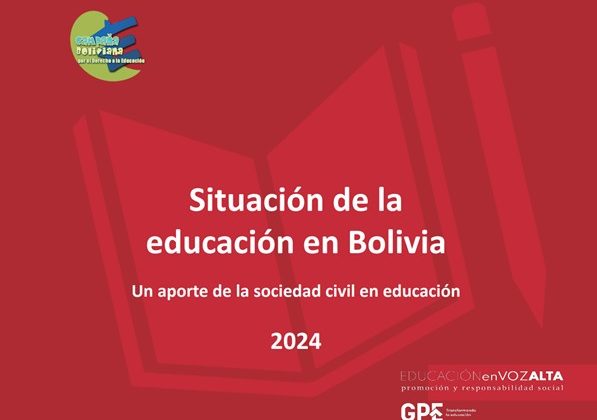
Study in Bolivia: Alert on Critical Failures in Education
Collaboration by: Cecilia Lazarte, Executive Director of the Bolivian Campaign for the Right to Education (CBDE)
Last year, in November, the Bolivian Campaign for the Right to Education (CBDE) presented the results of the study «The Situation of Education in Bolivia. A Contribution from Civil Society in Education,» which provides an overview about the education system over the past decade and evaluates access, equity, educational quality, and financing to education. This study represents a civil society contribution to the debate on education policies in regional meetings and for the national congress on the state of education in the country.
More than 300.000 adolescents and youth from indigenous and impoverished areas are excluded from the Bolivian Education System and therefore are not exercising their right to education. Despite the Bolivian State is allocating 8% of the Gross Domestic Product to the education sector, serious deficiencies persist regarding completion, quality, and inclusion in education from the basic level through to higher education. As stated by the United Nations Educational, Scientific and Cultural Organization (UNESCO) and the Economic Commission for Latin America and the Caribbean (ECLAC), education transforms people’s lives, drives economic, social, and community empowerment, stimulates economic development, and strengthens the competitiveness of society as a whole.
The Plurinational Education System shows significant increase of 13,7% of registered children, especially in regular education, which includes initial, primary, and secondary levels and serves 2.9 million people, while higher education serves 758.000 people. 87% of students are enrolled in public educational institutions; therefore, the State not only determines public policy but is also responsible for educational outcomes.
Bolivia expanded educational coverage at the early childhood and secondary levels; however, gaps persist among indigenous and poor populations, reproducing the generational cycle of poverty.
In terms of learning quality, serious shortcomings have been identified in test results for language, mathematics, and natural sciences. In language, 7 out of 10 children in third grade and 8 out of 10 in sixth grade face difficulties —they are unable to locate explicit information in texts, reflect on the content, make judgments about the text’s resources, characteristics, and structure a speech for communicative purposes. This situation negatively impacts students’ ability to develop critical thinking and relate concepts, these being essential skills for continuous learning and understanding what they read.
In mathematics, 8 out of 10 students in third grade and 2 out of 3 in sixth grade are at the lowest levels of performance.
In natural sciences, 9 out of 10 students in sixth year of secondary school are at the lowest performance levels. Many are unable to interpret data in graphs or draw conclusions from scientific descriptions and have difficulty applying basic knowledge about natural phenomena.
In Bolivia, we are facing a learning crisis because students who graduate do not have basic knowledge, limiting their opportunities to live with dignity.
CBDE calls for a redefinition of education by reclaiming its role in fostering scientific, critical, and emancipatory thinking and promoting individual potential.
More information: https://cbde.org.bo/wp-content/uploads/2024/11/Situacion-educacion-FINAL-1.pdf

 Bolivia
Bolivia